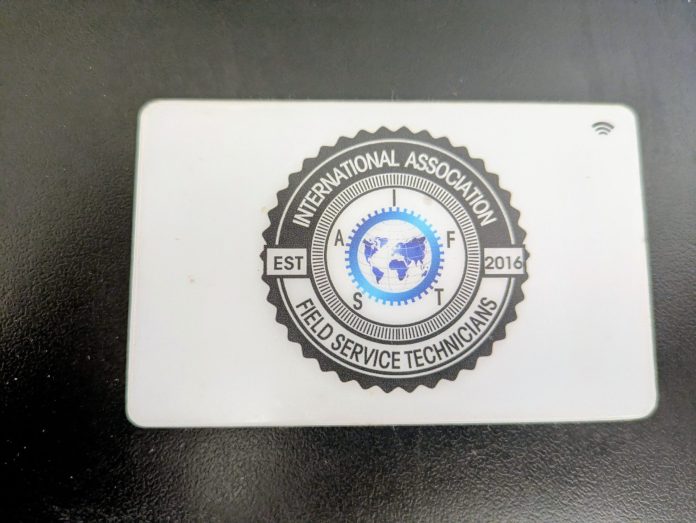There are moments in American labor history when the lines between profit and peril become so blurred that no amount of corporate spin can disguise the blood in the mortar. The murder of Field Service Technician Michael Dodge II in Virginia, killed while performing a work order at a foreclosed home, marked one such moment. Dodge was not a criminal. He was not an intruder. He was a man sent by a property preservation company to do the kind of work banks demand but will never touch themselves—cutting grass, securing locks, and cleaning debris in the shadows of eviction. His death revealed what those in the mortgage field services industry have long known but few will say out loud: that each knock on a door carries with it the potential for fatal misunderstanding. And now, with the federal government inviting private bounty hunters to perform nearly identical “address verification” visits for Immigration and Customs Enforcement (ICE), the likelihood of tragedy is not hypothetical—it is a mathematical certainty.
The Intercept recently revealed ICE’s plan to pay private contractors for locating and tracking undocumented immigrants using methods eerily similar to those employed by mortgage field service industry’s Field Service Technicians and Inspectors. These bounty hunters, some with little or no law enforcement training, will be dispatched to residential addresses to confirm occupancy, verify identities, and report findings to the government. The parallels to the property preservation industry are chilling. Field Service Technicians arrive at vacant or occupied homes based on data that is often outdated or wrong. Inspectors perform occupancy checks by knocking on doors, peering through windows, and documenting property conditions. The result is a high-stakes overlap of duties—one driven by the mortgage market, the other by immigration enforcement—both converging at the same front doors of America’s most vulnerable.
For the families living inside those homes, the distinction between a contractor and an agent of the state is not just blurred—it is irrelevant. A knock at the door from someone with a clipboard and a camera might as well be a raid. Immigrants, many of whom have already fled countries where uniformed strangers meant death or imprisonment, will see little difference between a Field Service Technician photographing a porch and a bounty hunter paid to collect their location data. The danger lies not just in mistaken identity but in panic, confrontation, and violence. The American foreclosure landscape, already saturated with fear, poverty, and displacement, is about to be weaponized by overlapping systems of economic and political control.
It would be naïve to think that the National Association of Mortgage Field Services—or whatever it calls itself now—will raise its voice against this encroaching disaster. After all, this is an industry whose leadership remained silent after one of its own was murdered. Instead of calling for improved safety standards or coordinated identification systems, it launched a podcast series celebrating profitability and workflow management. The silence of NAMFS, and by extension the silence of the large national firms it protects, has created the perfect vacuum into which ICE’s privatized enforcement model will expand. Both entities depend on poorly trained, underpaid contractors who bear all of the risk while management reaps the rewards. This while the International Association of Field Service Technicians (IAFST) not only raised their voice, but created a Dodge Memorial Fund in his memory! Their recent moves to ensure Field Service Technician and Inspector safety, through their IAFST NFC cards, are the first and only industry move to protect human life!
Field Service Technicians and Inspectors have spent years warning that the lack of standardized uniforms, identification badges, and local law enforcement coordination makes their jobs dangerous. Police have mistaken them for burglars. Homeowners have met them with shotguns. Now, with private immigration contractors entering the same neighborhoods performing the same tasks, confusion will escalate to catastrophe. It is not hard to imagine the next Dodge-like tragedy—except next time, it may involve a terrified family defending their home against what they believe to be a government raid. When the gig economy collides with the machinery of deportation, the casualties will not be measured in headlines but in funerals.
The economics driving this convergence are as cynical as they are predictable. In both cases, the government and corporate middlemen outsource high-risk tasks to the lowest bidder. Property preservation firms under HUD’s M&M contracts rely on subcontractors of subcontractors, each layer shaving a few dollars off the pay until the person actually performing the work earns less than minimum wage after expenses. ICE’s plan mirrors that model, dangling cash rewards to private bounty hunters for every “successful verification.” In both industries, the worker bears the liability while management hides behind indemnification clauses and public relations statements. When a Field Service Technician is assaulted, or when a bounty hunter triggers a fatal confrontation, the corporate office will issue a press release disavowing responsibility. The cost of human life will be written off as “operational risk.”
Ethically, the intersection of these two systems represents a new low for America’s labor and law enforcement paradigms. Field Service Technicians and Inspectors operate in a gray zone of quasi-legitimacy, performing duties once reserved for government marshals but now privatized to the point of moral collapse. ICE’s adoption of similar tactics—complete with cash incentives for citizen bounty hunters—turns the principle of due process into a marketplace. Both sectors are built on surveillance, both weaponize fear, and both rely on workers desperate enough to accept danger in exchange for a paycheck. When the machinery of foreclosure and deportation operate side by side, the very concept of home becomes indistinguishable from a target.
Local law enforcement, already strained and uninformed, will find themselves ill-equipped to differentiate between legitimate property preservation activity and rogue ICE bounty operations. Dispatch records will blur, 911 calls will multiply, and the line between civil service and private contract will dissolve. In communities already ravaged by displacement, this overlap will breed distrust and retaliation. For the laborers themselves, the risk of being mistaken for ICE agents will make routine work orders perilous. A Field Service Technician approaching a house for a grass cut may face hostility not because of who they are, but because of what they resemble. That psychological toll—working in fear, constantly second-guessing every approach—will further erode the already fragile workforce sustaining the industry.
The moral calculus of this impending collision is stark. On one side are corporate and governmental actors exploiting the labor of the working poor; on the other are families terrified by the sight of strangers documenting their lives. Somewhere in between are the Field Service Technicians and Inspectors who, like Dodge, are risking their lives for a system that values property more than people. The convergence of foreclosure maintenance and immigration enforcement reveals how deeply privatization has corrupted the social contract. When profit becomes the arbiter of both housing and citizenship, violence is not an aberration—it is policy by another name.
The field services industry has long prided itself on being invisible, its workers described as “ghosts” who clean, secure, and photograph America’s economic failures before anyone else sees them. Now, as ICE deputizes a new class of privatized ghosts to hunt the undocumented, the invisibility once worn as a badge of honor has become a death sentence. Without intervention, the homes of America’s poor will become battlegrounds of mistaken identity, and the blood spilled will be that of workers and residents alike. The tragedy of Michael Dodge II was not an anomaly—it was a warning. If the industry refuses to heed it, the next casualty will not just be a worker. It will be the very idea that labor can exist in this country without fear of being hunted.
In the end, the question is not whether these two systems will collide, but how many lives will be lost when they do. Field Service Technicians and Inspectors are not law enforcement. They are laborers—poorly paid, poorly protected, and increasingly placed in harm’s way by institutions that see them as expendable. ICE’s new bounty model ensures that their workplaces will soon be shared with armed opportunists motivated by cash and prejudice. When those two realities meet on the same doorstep, America will be forced to reckon with the consequences of outsourcing its conscience. Until then, every knock on a door will echo like a warning shot.









